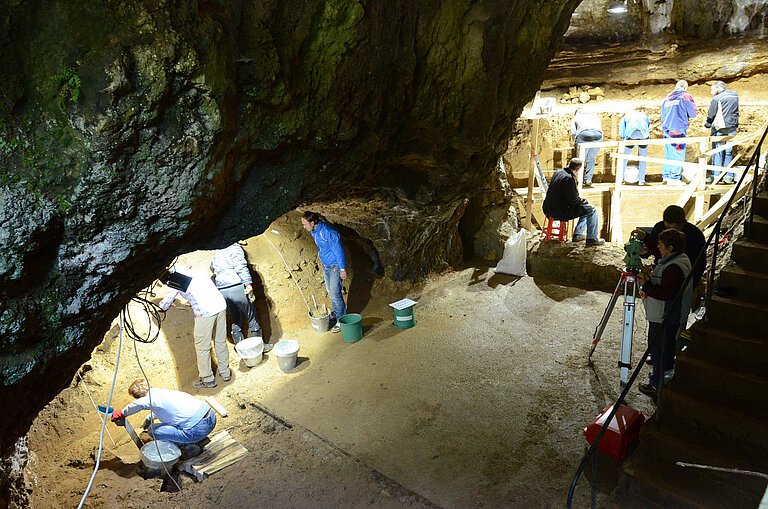Genomes of the Earliest Europeans
Ancient genomes shed new light on the earliest Europeans and their relationships with Neandertals

An international research team has sequenced the genomes of the oldest securely dated modern humans in Europe who lived around 45,000 years ago in Bacho Kiro Cave, Bulgaria. By comparing their genomes to the genomes of people who lived later in Europe and in Asia the researchers from the Max Planck Institute for Evolutionary Anthropology in Leipzig, Germany, show that this early human group in Europe contributed genes to later people, particularly present-day East Asians. The researchers also identified large stretches of Neandertal DNA in the genomes of the Bacho Kiro Cave people, showing that they had Neandertal ancestors about five to seven generations back in their family histories. This suggests that mixture with Neandertals was the rule rather than the exception when the first modern humans arrived in Europe.
Publication: Mateja Hajdinjak, et al., Initial Upper Palaeolithic humans in Europe had recent Neanderthal ancestry, Nature (2023). DOI: 10.1038/s41586-021-03335-3
Original Story Source: Max Planck Institute for Evolutionary Anthropology

 Alerts Sign-up
Alerts Sign-up